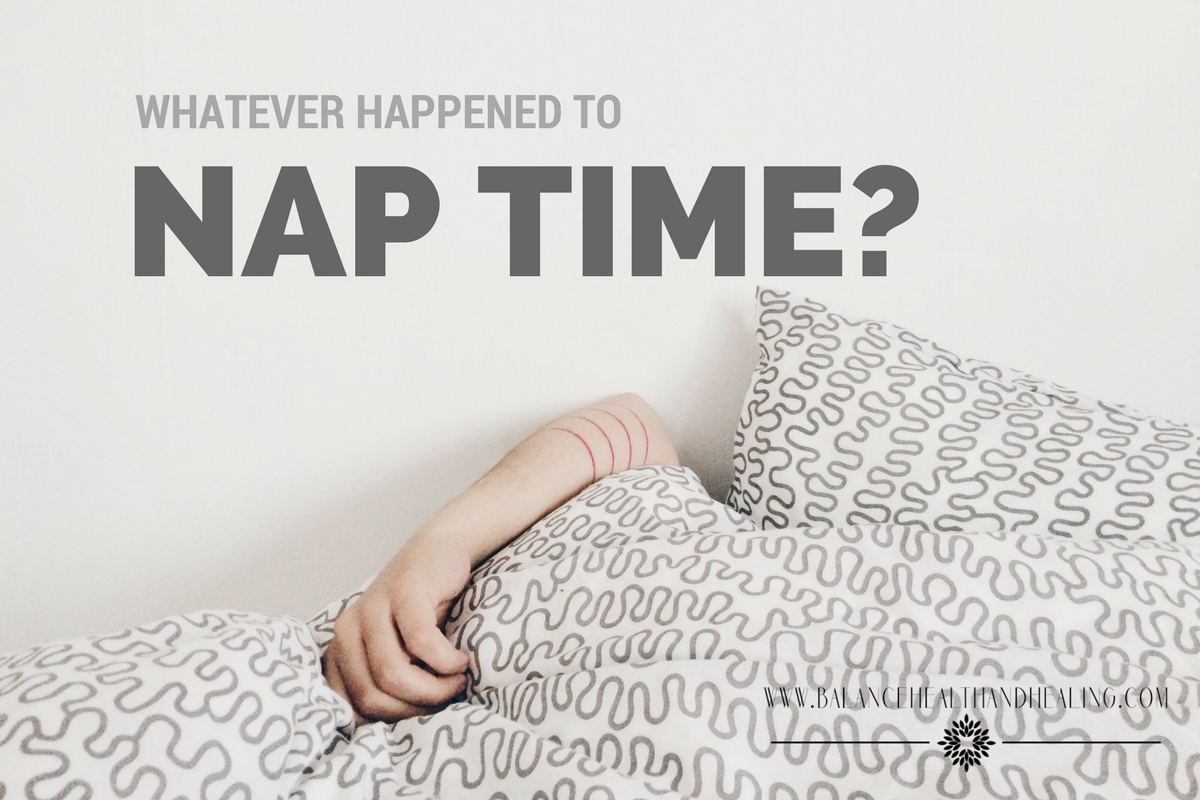Do you remember kindergarten? Sharing time, story time, nap time? I do. Lovely Mrs. Nelson would read us a story while we munched on our snacks, and then she would turn out the lights and we would all find a cozy spot on the floor (or not so cozy, but we were six so big deal), and we’d nap. For real.
My kids did not have nap time in kindergarten. They did not have snack time. I hope they had story time. They barely had recess. The world is picking up speed and we are all left frazzled, overwhelmed, and exhausted. Can we all just agree to bring back nap time?
Sleep Revolution
Our fast-paced world doesn’t allow much in the way of down time, and most of us are looking for ways to get more done in the time we have. The result is that most of us end up sacrificing sleep. “I’ll sleep when I’m dead” is a common refrain. Okay, then, let me know how that works out for you.
In her ode to sleep, The Sleep Revolution (2016), Arianna Huffington writes about the value of sleep, the risks of sleep-deprivation, and the need for a sleep revolution. I want to join the army, I think I could make a good foot soldier. But I’m just so tired. . .
You see, we are all a little obsessed with working hard, never quitting, and avoiding—at all costs—appearing lazy. We drag ourselves through the day hopped up on caffeine and fall into bed too late and too wired to sleep. It’s a vicious cycle that leads to poor health and even worse decision making. And yet we persist. Sadly, the nap has suffered an ignominious death as a result.
Bringing Back Nap Time
I have brought nap time back into my life. Initially I did it out of necessity because I couldn’t move another step, although I was racked with guilt and felt obligated to let everyone know that the only way I was preventing my spleen from exploding was to take a quick nap. Oh the shame. Then one day as I awoke from a lovely 30-minute dozer, I realized that I should stop justifying my napping ways. Most people in my life could care less if I napped (some—namely my children—actually reveled in it. They may or may not have been making online purchases while I snoozed, but that’s a post for another day), and those who did judge were people I probably needed out of my life anyway. So there’s that.
Although prone to guilt and fretting (who, me?), my naps have become much more enjoyable since letting go of what others may think of me. “I need to nap most days, so sue me” has become “are you aware of the benefits of napping? No, well let me elucidate you.”
Benefits of Nap Time
Here goes. . .
Naps help us recharge. Even when we’re getting adequate sleep, naps can act as a reset button by providing both a physical and mental boost.
Naps help us think more clearly. And naps can sharpen our focus and problem-solving capacities.
Naps can improve memory; they’ve been shown to improve memory recall.
Naps can mitigate poor sleep. If you’re sleeping poorly at night for whatever reason, naps can help decrease those effects at least in the short-term.
Naps need not interrupt night-time sleep. Short catnaps of 30 minutes or less do not negatively impact night-time sleep.
Naps relieve stress. Research shows that naps lower vulnerability to stress. Sign me up!
Naps can boost immunity. The body recovers during sleep. Naps ca n help.
n help.
Naps can improve health. They have been shown to lower blood pressure in addition to improvement on several other health factors. How cool is that?
Naps benefit us even more as we age. The older we get, the more we benefit from napping. So you see, kindergarten should not be the end of napping, but the beginning.
Naps don’t necessarily require sleeping. Laying down and closing your eyes for a few minutes—even if you don’t actually sleep—can be restorative. Think of this time as hitting the refresh button on your browser.
Brief catnaps in the early afternoon are best. Napping too late or too long will impact night-time sleep and why would you want to do that to yourself?
Join The Revolution
Perhaps most importantly, naps just feel good. Oh, they feel so good. The National Sleep Foundation calls naps “a pleasant luxury, a mini vacation” (as in Huffington, 2017). Who couldn’t use a vacation most afternoons?
Now I nap most days. Instead of trying to push through with caffeine, food, or distraction, I am learning to listen to my body and respond in kind. I lay down, I close my eyes, and I rest without guilt. Naps are one small way I’m learning to attend to my needs without apology. And what I’ve discovered is that after my naps I’m sharper, more engaged, and more motivated to follow through on tasks and goals.
How can you join the sleep revolution? Maybe you start a bedtime ritual to gear yourself down for sleep. Perhaps you put electronics away earlier in the evening. Maybe—like me—you learn the pleasure of an afternoon siesta. Whatever it may be, embrace the benefits of sleep and identify one way you can be part of a revolution.
Reference
Huffington, A. (2017). The Sleep Revolution: Transforming your life, one night at a time. Harmony Books: New York.

